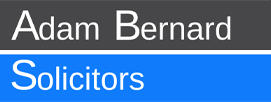However, the exceptional hardship argument provides an avenue to avoid disqualification. Exceptional hardship refers to circumstances where losing your driving license would cause undue and disproportionate hardship to you or others who depend on you.
This argument recognizes disqualification’s impact on your ability to work, fulfil family responsibilities, or deal with medical needs.
Presenting an exceptional hardship argument requires careful preparation. Gathering relevant evidence, such as medical records, employment contracts, or testimonials, is essential to support your case. Qualified hardship argument offence lawyers can guide how to present your argument and effectively maximize your chances of success.
By seeking the assistance of experienced motoring offence solicitors, such as those at the London-based Adam Bernard’s, you can benefit from their in-depth knowledge of the law and expertise in handling exceptional hardship cases. Our qualified hardship argument offence solicitors will analyze the specific circumstances of your case, guide you through the legal process, and help you build a strong argument tailored to your situation.
The totting-up procedure is a system that monitors penalty points on your driving record. It works by keeping track of the points you accumulate from various motoring offences. You may face disqualification from driving if you receive 12 or more penalty points on your license within three years.
The procedure operates on the principle that repeated or serious driving offences should result in increased penalties. Each offence carries a specific number of penalty points added to your record upon conviction. These points stay on your record for different durations, typically 4 to 11 years, depending on the offence
.
You will be subject to disqualification when you reach or exceed 12 penalty points within three years. The length of the disqualification period depends on the number of penalty points on your record and any previous disqualifications you may have had.
It’s important to note that the totting-up procedure applies to all drivers, including both new and experienced drivers. Six or more penalty points within the first two years of passing your driving test can lead to license revocation. You must then reapply for a provisional license and retake the theory and practical tests.
You may get a driving record copy from the Driver and Vehicle Licensing Agency (DVLA) for accurate and up-to-date information on your penalty points. This record will provide a breakdown of the offences, dates, and penalty points associated with your driving history.
Navigating the totting-up procedure can be complex, and it’s crucial to seek professional legal advice from exceptional hardship argument offence solicitors who are experienced in this area. They can assess your circumstances, advise you on the best course of action, and help you mount a vigorous defence if necessary.
If you are at risk of disqualification due to excessive penalty points, don’t hesitate to consult with our expert motoring offence solicitors. Our exceptional hardship argument offence lawyers have extensive experience handling cases related to the totting-up procedure.
Exceptional hardship refers to a legal argument that can be used to avoid disqualification from driving, even if you have accumulated 12 or more penalty points. You may need to use this argument when facing disqualification would cause significant and exceptional hardship to you or others dependent on your ability to drive.
The exceptional hardship argument takes into account the specific circumstances of each case. It aims to demonstrate that the consequences of disqualification would go beyond the everyday hardship that may be expected. It is important to note that exceptional hardship is not limited to financial implications but can also include personal and professional consequences.
You should gather relevant evidence and present a compelling case to support your exceptional hardship argument. This may include providing documentation or testimonies highlighting disqualification’s adverse effects on your personal and professional life.
Factors such as the impact on your employment, care responsibilities, education, or medical needs can be crucial in demonstrating exceptional hardship.
Additionally, it is vital to show that you have taken steps to avoid future offences, such as completing advanced driving courses, attending rehabilitation programs, or making lifestyle changes. Presenting a proactive approach towards improving your driving behaviour and ensuring public safety can strengthen your argument.
When presenting the exceptional hardship argument, it is highly recommended to seek the assistance of experienced motoring offence solicitors. They can provide valuable advice on building a solid case, gather supporting evidence, and represent you effectively in court.
If you are facing disqualification and believe that exceptional hardship applies to your situation, our team of motoring offence solicitors is here to help. We have a wealth of experience handling exceptional hardship cases. Our lawyers can provide the guidance and representation you need to present a compelling argument and protect your driving privileges.
Contact us today to schedule a consultation and discuss your case in detail.

When presenting an exceptional hardship argument, it can be helpful to provide specific consequences that disqualification may have on your personal or professional life. Here are some common examples of exceptional hardships:
It’s important to note that not all circumstances will qualify as exceptional hardship. For example, minor inconveniences like being unable to attend the gym or social events generally do not meet the threshold of exceptional hardship. The court assesses each case individually and weighs the specific circumstances presented.
To ensure that your exceptional hardship argument is compelling, you must consult with experienced motoring offence solicitors. Qualified driving offence solicitors can review your situation, identify relevant hardships, and help you gather evidence to support your case effectively.
After pleading exceptional hardship, several outcomes can occur in court. Here are the possible scenarios:
It’s important to note that the outcome of an exceptional hardship argument depends on various factors, including the strength of your case and the discretion of the court. The judge will carefully evaluate the evidence and circumstances presented during the proceedings.
To increase your chances of a favourable outcome, seeking the guidance of experienced exceptional hardship argument lawyers is crucial. They can assess your case, help you build a compelling argument, gather supporting evidence, and present your case effectively in court.
Here at the London-based Adam Bernard’s law firm, our exceptional hardship argument offence solicitors have extensive experience handling motoring offences. We understand the intricacies of presenting an exceptional hardship argument and will provide you with expert advice and representation throughout the legal process.
If you face potential disqualification and believe you have grounds for an exceptional hardship argument, schedule a consultation with our driving offence solicitors today. We will assess your case and work tirelessly to ensure your driving privileges are adequately defended.
Copyright © 2025 Adam Bernard Solicitors. This Firm is Authorised & Regulated by the Solicitors Regulation Authority SRA NO: 598171, 656730.





